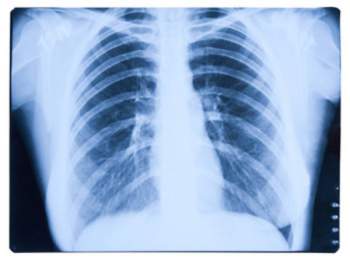
Thoracoscopy

Malignant Mesothelioma Explained: Malignant mesothelioma cancer is a rare medical condition that affects the mesothelial cells of the serous membranes. The most common form of malignant mesothelioma cancer, referred to as pleural mesothelioma, impacts the lining of the lungs. Approximately 2,000-3,000 cases of mesothelioma cancer are diagnosed each year. Malignant mesothelioma cancer impacts the membranes of certain large cavities in the body. These cavities, called serous cavities, shield a number of organs in the body, including the lungs and heart. The membranes surrounding these cavities protect vital organs from friction and abrasions that that result typical daily movement, such as breathing. The serous membranes derive from mesothelial cells, which form to create the mesothelium—tissue layer of the serous membranes. Malignant Mesothelioma may be classified in the following forms: Pericardial Mesothelioma Cancer: Takes place in the pericardium (lining of tissue surrounding the heart). Peritoneal Mesothelioma Cancer: Occurs in the peritoneum (membrane surrounding the abdomen). An infrequent form of this cancer may also affect the male testicles (the lining surrounding the scrotum is an extension of the peritoneum). Pleural Mesothelioma Caner: As stated above, this form of mesothelioma is the most common type of mesothelioma cancer. Pleural mesothelioma cancer disrupts the lining of the lung cavity. All types of mesothelioma cancer derive from an acute tumor. Mesothelioma cancer rapidly spreads to surrounding organs and tissue. The majority of mesothelioma cases are associated with exposure to asbestos fibers. That being said, not everyone who is in habitual contact with asbestos fibers will be infected with malignant mesothelioma cancer. Although malignant mesothelioma cancer is uncommon, it is extremely lethal. When detected, mesothelioma cancer is primarily found in its advanced stages, so prognosis for mesothelioma sufferers is far worse when compared to patients with other types of cancer that are typically detected earlier. The average survival time attached to a mesothelioma diagnosis is only 1 to 2 years. This timeframe; however, varies based on the type of mesothelioma cancer and the general health of the patient. Mesothelioma cancer is extremely difficult to accurately diagnose because the symptoms are slow-developing. Mesothelioma cancer patients will not observe symptoms for 10-15 years following infection. Moreover, complications associated with diagnosis stem from the cellular makeup of malignant mesothelioma cancer—the disease is nearly impossible to differentiate from more basic cancers. That being said, numerous examinations and diagnostic tools are being studied and implemented to achieve a faster and more accurate mesothelioma diagnosis. One of the most common procedures associated with mesothelioma diagnosis is a Thoracoscopy. What is a Thoracoscopy? A Thoracoscopy is an advanced medical procedure involving internal examination, a biopsy, and/or a resection of masses or cancerous cells within the thoracic and pleural cavity. This procedure is performed either under sedation or general anesthesia. To explicitly examine the inner walls of the abdomen, medical professionals employ the utilization of a thoracoscope, which is a long thin tube attached to a light and magnifying glass. This instrument is inserted through two to three incisions in the abdomen for proper observational angles. Thoracoscopy is often undertaken to observe the pleural area. Thoracoscopy comes in two forms: video-assisted thoascopic surgery, employs the use of the previously-mentioned tube that is attached to a high-resolution camera and demands general anesthesia; and a non-surgical Thoracoscopy which may be performed under conscious sedation. A Thoracoscopy is typically utilized when less invasive tests fail to offer a definitive mesothelioma diagnosis. Thoracoscopy may assess for other cancers, be used to collect tissues for further examination or may be applied to introduce alternative medications into the patient’s lungs. It is sometimes necessary for pleural mesothelioma sufferers to undergo an exploratory procedure, to enable a medical professional to collect tissue samples and observe the patient’s cancer. All exploratory procedures help determine other vital facts about a patient’s condition; an exploratory operations aids in designing the most efficient treatment approaches. A Thoracoscopy is a prime diagnostic procedure to observe and evaluate a patient’s mesothelioma cancer. What Should I Expect During a Thoracoscopy? Although the procedure is often performed in outpatient settings, a Thoracoscopy is regularly conducted in a hospital under general anesthesia. The operation will begin when the doctor makes two or three small incisions between the patient’s ribs, attempting to minimize damage to nerves and muscles. During the surgery the patient must be hooked up to a ventilator. If the primary purpose of the Thoracoscopy is to examine an infected lung, the diseased organ will be deflated to make room for evaluation. The ventilator will help the other lungs perform their natural breathing effort. A tube must then be inserted through one of the incisions; the tubes for tissue collection and other instruments are then inserted into the remaining incisions. When the surgery is finalized, the infected lung is re-inflated and all but one of the incisions is stitched-up. The remaining incision will be fitted with a specialized draining tube, which is to be removed approximately 3 days later. In most Thoracoscopy procedures, patients will remain in a hospital setting for roughly one week. Pain killers will be administered and the drainage tube will remain attached until the medical professional is satisfied that all excess fluids are removed. Risks following a Thoracoscopy include the following: infection, bleeding and a re-collapse of the infected lung (a terrible situation referred to as pneumothorax).


















